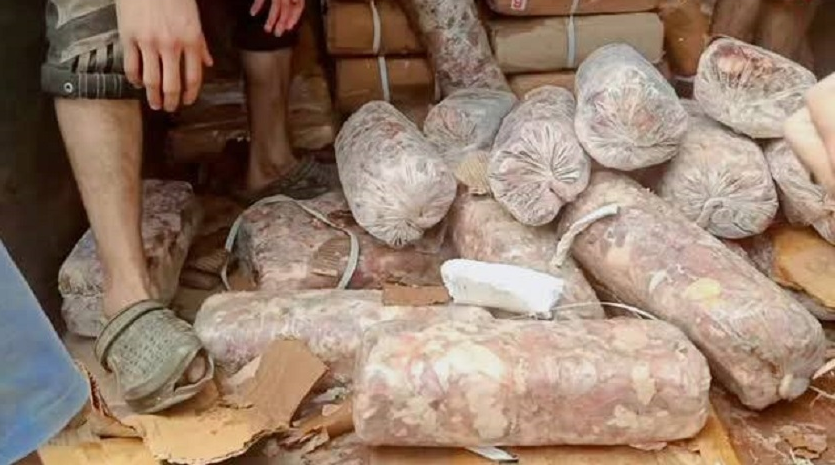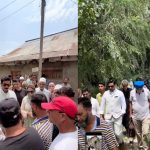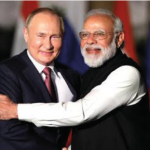ROTTEN CONSCIENCE
The recent seizure of thousands of kilograms of rotten meat and its byproducts in Kashmir is not just a routine raid or a headline-grabbing bust—it is a chilling reminder that we are systematically being poisoned. This is not an isolated case. It’s just the tip of the iceberg in a valley where the food we eat, the drinks we consume, and the medicines we take are increasingly becoming threats to our health and lives.
We often talk about rising illnesses in Kashmir, and most attribute it to seasonal changes or stress. But take a walk through any government hospital or private clinic, and you’ll find another story—one that begins in our kitchens and local markets. While stomach disorders, fevers, and infections are common, doctors are now warning of a terrifying trend: increasing cases of kidney failure, liver damage, cardiac complications, and even cancers—many of which are linked to long-term exposure to adulterated, unhygienic, and chemically contaminated food and drinks.
And when hospitals are overwhelmed and patients don’t receive timely attention, our collective frustration often turns toward doctors. We accuse them of negligence, incompetence, and in some cases even resort to physical assaults. Yes, there are black sheeps among the medical fraternity, as in any profession. But let’s not ignore the truth: the majority of doctors in Kashmir are competent, dedicated, and honest. They work long hours in under-resourced systems trying to treat diseases that are no longer just “natural” but man-made—caused by what we eat and what we’re sold in the name of food and medicine
This is a public health emergency, and we must treat it as such.
Every day, street vendors line our roads with carts selling local snacks, often prepared in unhygienic conditions with substandard oil and ingredients. Outsiders set up food carts in every nook and corner, selling cheap, eye-catching food that may be appealing to children but is, in many cases, slow poison. Add to this the proliferation of fast-food joints using recycled meat and synthetic sauces, the flood of chemical-laced juices, expired bakery products, and adulterated wazwan. Our bodies are paying the price for someone else’s profits.
Even worse, medical agencies are openly selling counterfeit medicines, fake supplements, expired syrups, and spurious antibiotics. These aren’t just cases of cheating—they are crimes against humanity. The sick are being sold false hope in the form of pills that do nothing or worse, harm them further.
The most shocking part is: this is all happening in broad daylight, in front of our eyes, in our neighborhoods, and often with the full knowledge of local communities.
The government, of course, must act—and act decisively. But let’s not pretend that it can do everything. Many among the enforcement machinery are incompetent, under pressure, or, worse, corrupt. Some officials take bribes to turn a blind eye. Some knowingly shield culprits while keeping their higher-ups in the dark. Raids are often symbolic, prosecutions rare, and follow-up almost nonexistent. In such a system, if we keep waiting for the government to clean things up, we are choosing decay and death.
What is needed now is a people’s movement.
Religious leaders like Mirwaiz Umar Farooq have raised this issue in their Friday sermons and the Grand Mufti has issued a fatwa declaring the sale of rotten meat haram. These statements are necessary, but they are not enough. This crisis demands more than sermons—it demands sustained social action.
Every masjid and every mohalla committee across Kashmir must take the lead. Let our community leaders rise above ceremonial roles and begin grassroots mobilization. Let imams and elders call for cleanliness, awareness and accountability—not just in our prayers, but in our purchases.
The traders and vendors knowingly selling unhygienic, rotten or adulterated food must be named and shamed. There must be a social boycott of such individuals. These are not minor offenses—they are crimes against humanity. If someone in your neighborhood is selling poison for profit, they are no better than a murderer. We must treat them as such.
Communities can form local food safety watch groups—citizens trained or guided to observe, report, and coordinate with authorities. And these groups must include youth, women, senior citizens—everyone who has a stake in clean, safe food.
And yes, we need awareness too. Many street vendors may not even know that what they’re selling is harmful. But ignorance cannot be an excuse when lives are at stake. Let’s educate them. Let’s support them in shifting to cleaner practices—but only if they are willing to reform. The time for warnings is over. Now is the time for accountability.
Let us also begin to pressure manufacturers and distributors of fake medicines, chemical soft drinks and adulterated packaged goods. Don’t buy products with unclear labelling. Don’t patronise outlets with repeat violations. File RTIs. Demand transparency from the administration.
But most importantly, let us stop waiting until it hits our own families. When there is fire in a jungle, no tree can remain safe. Today it may be your neighbour’s son in the ICU with kidney damage due to tainted food. Tomorrow, it could be yours.
Let us stop blaming each other. Let us stop hiding behind “I,” “Me,” and “Myself.” Let us become “We.” This is about our collective survival. It’s about what we allow into our homes, what we serve to our children, what we tolerate in our markets. This is about trust. About dignity. About health and life.
Let this be more than another passing scandal. Let this be the beginning of a real, organised, and relentless movement.
Let the poison be purged—not just from our plates, but from our society.
Let us act. Before it’s too late.
(Author works as J&K Bureau Chief for Deccan Herald & is General Secretary of Press Club of Kashmir. Twitter: @zulfikarmajid)










